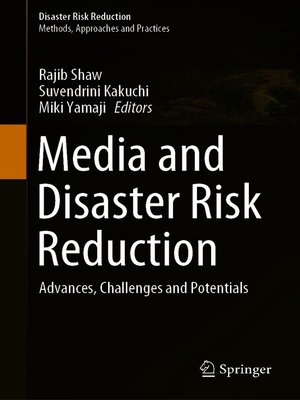Media and Disaster Risk Reduction
ebook ∣ Advances, Challenges and Potentials · Disaster Risk Reduction
By Rajib Shaw

Sign up to save your library
With an OverDrive account, you can save your favorite libraries for at-a-glance information about availability. Find out more about OverDrive accounts.
Find this title in Libby, the library reading app by OverDrive.



Search for a digital library with this title
Title found at these libraries:
| Library Name | Distance |
|---|---|
| Loading... |
The media is considered to be of utmost importance in all phases of disasters, before, during and after, with different types of media having different proactive roles to play in disaster risk reduction. Before disasters, they play essential roles not only in bringing early warning to people but also in enhancing their perception of the need to take action. At during- and post-disaster response recovery phases, community radio and social media are the key. These necessitate a resilient media infrastructure as the core of uninterrupted coverage.
Media literacy has become an important issue for several stakeholders, including governments. In addition, more focus is placed on media governance to look at the priorities of disaster risk reduction initiatives within the media. All of these are considered to lead to trust in the media, which further improves people's disaster response actions based on information from the media, before and during disasters.
Covering different aspects of media, this book is a valuable source for students, researchers, academics, policy-makers and development practitioners.







